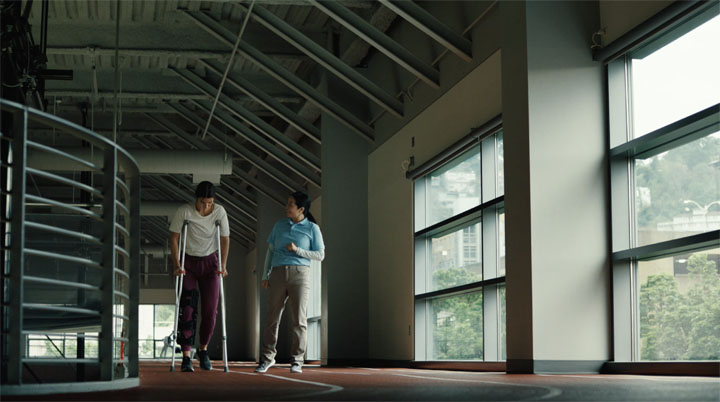
In discussions with your patients on treatment for knee cartilage pain, it's important to share the facts about cartilage damage:
- Cartilage defects won't heal on their own and often worsen over time.
- Early treatment can lead to improved results.
While there are multiple treatment options for articular cartilage damage of the knee, MACI continues to grow in popularity. What should your patients know about the latest generation of autologous chondrocyte implantation?
Effectiveness of MACI in joints other than the knee has not been established. Safety and effectiveness of MACI in patients over the age of 55 years have not been established.
During your patient consultation, plan to cover the various criteria for MACI eligibility, including age, cartilage defect location and ability to follow a highly individualized rehabilitation regimen.
Plus, consider walking through the patient benefits that MACI offers:
Advantages of Using a Patient's Own Cells
As an autologous chondrocyte implant, MACI uses a patient's own cells to regrow new cartilage for the knee joint. Patients have repeatedly reported the unique nature of the procedure appeals to them. Further, given the MACI implant uses the patient's own cells, it provides the advantages of no risk of immune rejection and no risk of transmitted diseases.
Efficacy and Safety of MACI
MACI has been proven in clinical studies. The procedure demonstrated clinically meaningful improvements in pain and function compared to microfracture over two years, and those improvements were maintained at year five.
The most frequently occurring adverse reactions reported for MACI (≥5%) were arthralgia, tendonitis, back pain, joint swelling, and joint effusion. Serious adverse reactions reported for MACI were arthralgia, cartilage injury, meniscus injury, treatment failure, and osteoarthritis. Please see full ISI and link to PI below.
The Shelf Life of MACI Implants
A patient's autologous cartilage implant will be stored at Vericel's FDA-licensed facility in a cryopreservation tank, which allows the chondrocytes to be viable for up to five years.
Rehabilitation Tailored to Patients
Among patients surveyed after a MACI biopsy, 30 percent said they considered "the time needed to return to activities after surgery" as the most important factor impacting their decision to seek further treatment.
Recovery from MACI is highly individualized. Following the MACI procedure, patients participate in a nine month or more rehab program that is tailored specifically to their unique goals. MACI is contraindicated in patients who are unable to follow a physician-prescribed post-surgical rehabilitation program.
In conversations with patients on rehab, explain how they hope to advance through MACI rehab milestones relatively quickly throughout their recovery. Patients are generally mobile with crutches in the first week after surgery. They can engage in independent home exercise as early as one month after treatment and are free of knee braces by 8 to 12 weeks post-surgery. Ultimately, after 6 to 9 months of rehabilitation, MACI can help knee pain sufferers reclaim their active lives.
Insurance Support
MACI offers dedicated MyCartilageCare case managers to help patients through the insurance approval process. While there are many different insurance carriers with varying coverage levels, 89 percent of MACI surgeries were approved by the insurer on the first try*. Insurance appeals, if needed, require approximately 20 to 25 days*. As of 2021, UnitedHealthcare has expanded its coverage of MACI to include patella and multiple cartilage defects in the knee, so MACI treatment is now accessible to even more patients.
*MACI cases activated between January 2021 and December 2021. Data on file. Insurance approval is defined as payor pre-authorization for the MACI procedure. Nothing contained herein is intended, nor should it be construed, to suggest a guarantee of coverage or reimbursement for any product or service. Check with the individual insurance provider regarding coverage.
Please see below for full indication and ISI. Blog posts are intended to provide educational information only and do not constitute medical advice.

